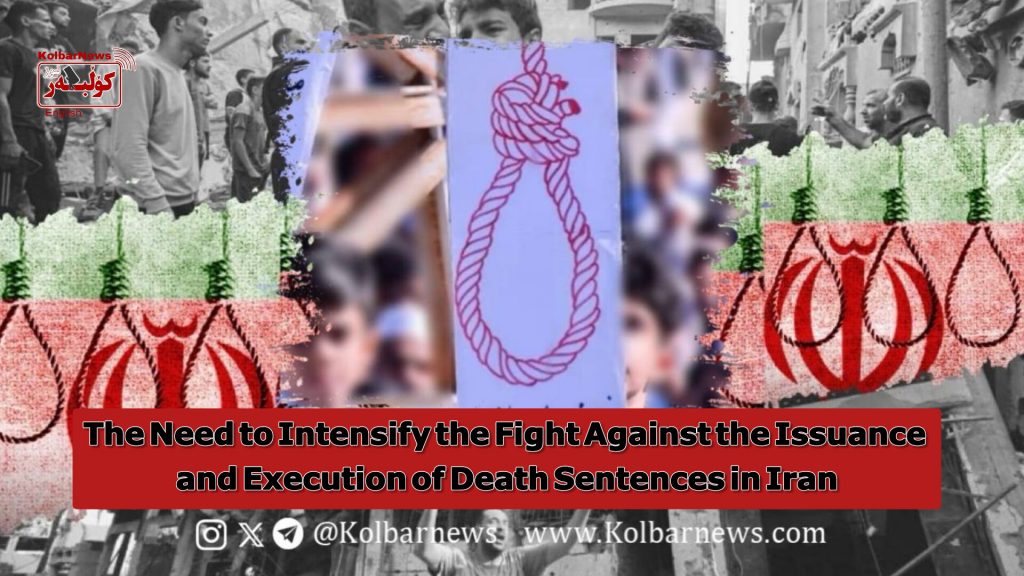
The human rights news agency HRANA, on the same day that news broke of Khamenei surrendering to Trump’s threats by refusing direct negotiations with the U.S., reported a horrifying event:
“At dawn on Tuesday, April 8, Farhad Shakeri, Abdolhakim Azim-Gorgij, Abdolrahman Gorgij, Taj-Mohammad Khormaly, and Malek-Ali Fadaei-Nasab, political-security prisoners in Vakilabad Prison in Mashhad, were executed. The families of two of the executed confirmed the news to HRANA. Four of the executed were Sunni followers, and Malek-Ali Fadaei-Nasab was the only Shia accused in this case. Nevertheless, all were tried in the same case and sentenced to death on charges of ‘baghi’ (armed rebellion) through ‘membership in Salafi groups’ and the ‘National Solidarity Front of Iran’s Sunnis.’
According to the families, who are still waiting outside Mashhad Prison to receive the bodies of their loved ones, “The execution took place without prior notice and without the chance for a final visit.” One family member told HRANA, “We only learned about the executions through phone calls.”
The case involved 12 defendants 11 Sunni and one Shia (Malek-Ali Fadaei-Nasab) who were arrested in 2015 by the Intelligence Ministry. It took nearly a year before they were transferred from secret detention centers to Vakilabad Prison. In January 2025, these prisoners exposed torture and brutal conditions in Iranian prisons through a public letter titled: “We have repeatedly witnessed what happens to our defenseless compatriots in Iranian prisons.”
These political and ideological prisoners were executed on the 63rd day of the “Tuesdays Against Execution” campaign. In its statement this week, the campaign had already expressed concern over their imminent executions.
The statement began: “With the end of the Nowruz holidays, during which executions had relatively decreased, we are once again witnessing a sharp increase in the issuance and execution of death sentences. In recent days, many prisoners have been transferred to quarantine for execution. On Monday alone, at least 10 prisoners were moved to the ‘secure ward’ in Ghezel Hesar Prison, indicating their executions may be imminent.”
Coinciding with these events, on April 8, 2025, Amnesty International’s annual report was released. Agnes Callamard, Amnesty’s Secretary-General, said of Iran: “In 2024, Iran systematically continued to use the death penalty to punish protesters involved in the ‘Woman, Life, Freedom’ movement.”
The statistics in the report, which the authors admit are incomplete, show that the Islamic Republic carried out 972 executions in 2024, making up 64% of all documented executions globally. This firmly positions the Islamic Republic as the world’s top executioner.
Amnesty’s report also reveals that at least 10% of those executed were ethnic Baluch, despite them making up only 5% of Iran’s population. Amid rising discriminatory behavior against Afghan migrants, executions of Afghan nationals tripled, from 25 in 2023 to 80 in 2024 half of them on drug charges.
In 2024, at least 30 women were executed in Iran, some of whom were victims of domestic violence. Additionally, four individuals who were under 18 at the time of the alleged crime were also executed.
The report further notes the issuance of death sentences for activists such as Sharifeh Mohammadi (a women’s and labor rights activist), Varisha Moradi, and Pakhshan Azizi, a Kurdish social worker.
Currently, right-wing media are deliberately trying to portray Trump’s threats against the Islamic Republic as the main danger to the regime and somehow beneficial to freedom-seeking citizens. However, Khamenei himself has identified the internal threat namely, the rising revolutionary movement of the people as a much greater danger to the Islamic government than any foreign threat.
The increase in executions must be seen in this light. But all evidence suggests that escalated repression, especially more executions, only fuels the anger and determination of freedom-seekers to overthrow the Islamic capitalist regime and will hasten its fall.

